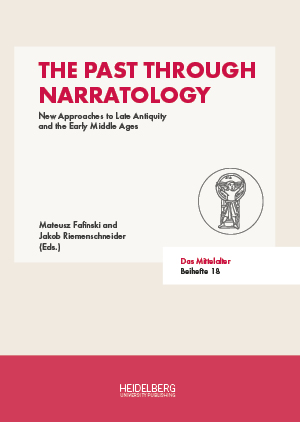How to Cite
License (Chapter)

This work is licensed under a Creative Commons Attribution-NonCommercial-ShareAlike 4.0 International License.
Identifiers (Book)
Published
Narrating Frontiers of Geographical Imagination
Remembering Alexander the Great in the ‘Peutinger Table’
Abstract Within the ‘spatial turn’, in the course of the last three decades a new theorisation of maps and mapping has fundamentally changed the way we look at maps and their production today. This rethinking of maps has paved the way to an innovative interaction between cartographers and literary scholars. If maps function within a communicative act, they can not only be ‘read’ but also ‘narrated’. The type of maps that seems the most suitable to study from a narratological perspective is itinerary maps. Such maps, in fact, reflect more clearly how space is experienced, thus allowing us to detect the dialectic between place and narrative. They might present a scaled representation of space, but the main attribute of itineraries is to mirror a specific ‘lived space’, one made significant by the movement of people. This contribution focuses on a few details of the ‘Peutinger Table’ – the references to Alexander the Great and his campaigns in Central Asia and India – with the purpose of highlighting how such textual and iconographic elements assisted the imaginations of Roman and medieval observers and provided stories associated with these places. These map’s elements reflect and preserve the emotional ties and intellectual engagement that map-readers might develop with these particular locations. They show the participation of political ideologies and ethnic discourse in the creation and representation of a distinct sense of place.






